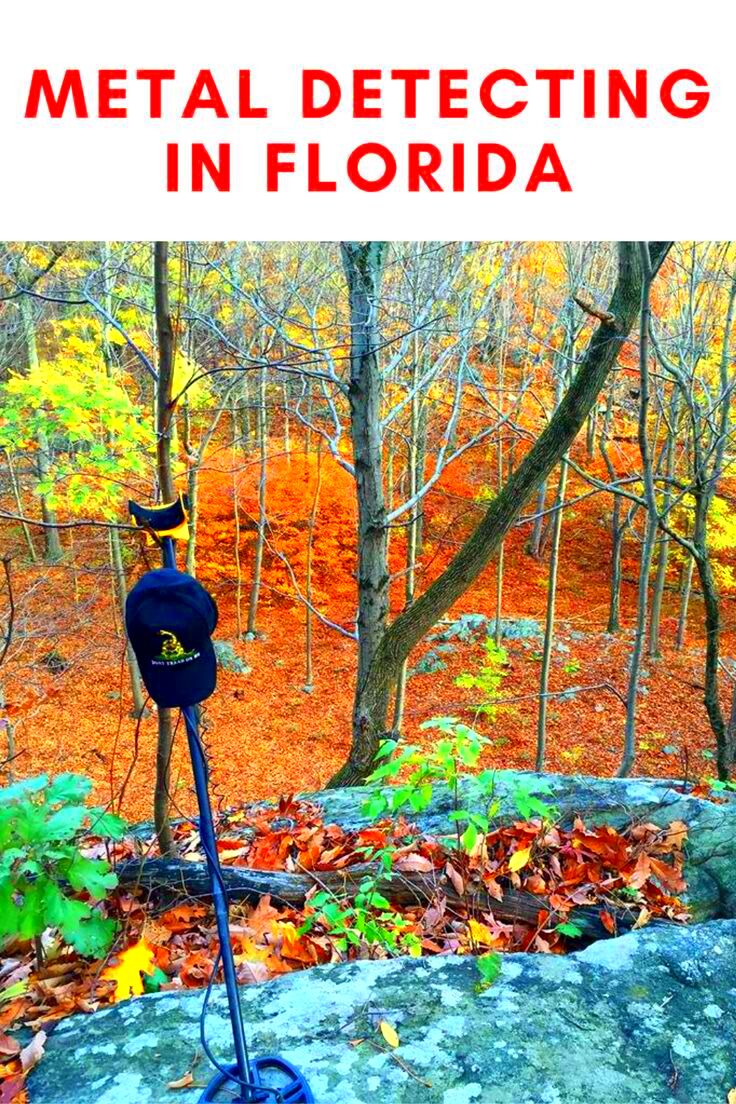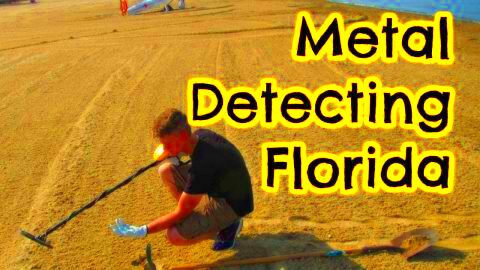Metal Detector Laws in Florida and What You Need to Know
Metal detecting can be an exciting hobby, especially in a state like Florida, where history and treasures are waiting to be uncovered. However, it’s essential to know the laws surrounding this activity to avoid any legal issues. Florida has specific regulations regarding where and how you can use a metal detector. Being informed will help you enjoy your hobby while respecting the law and the rights of others.
Permits Required for Metal Detecting

In Florida, the requirement for permits when using a metal detector largely depends on where you are detecting. Here’s a breakdown:
- State Parks: You must obtain a permit. Each state park has its own rules, so check with the specific park office.
- County and City Parks: Many local parks require a permit as well. Contact your local parks department for details.
- Beaches: Generally, you don’t need a permit for most public beaches, but some areas might have specific regulations.
- Private Property: Always get permission from the property owner before detecting.
It’s best to do your homework and ensure you have any necessary permits before heading out. Ignoring permit requirements can lead to fines or having your equipment confiscated.
Public Places Where Metal Detecting is Allowed
Florida offers numerous public places where metal detecting is permitted, providing a great opportunity for treasure hunters. Here’s a list of common locations:
- Public Beaches: Most beaches allow metal detecting, especially those that see a lot of foot traffic.
- Parks: Many city and county parks permit detecting with or without permits.
- Historical Sites: Some sites may allow metal detecting, but always check regulations first.
- Recreational Areas: Public recreational areas often have rules, so verify before you start.
Always remember to leave the area as you found it. Fill any holes you dig and avoid damaging the landscape. Respecting the environment ensures that metal detecting can be enjoyed by future generations.
Private Property and Metal Detecting Regulations
Metal detecting on private property can be an exhilarating experience, especially if you’re hunting for buried treasures. However, it comes with specific regulations you must follow. The key rule is simple: always get permission from the property owner. This not only keeps you within the law but also fosters good relationships with landowners.
Here are some important points to consider when detecting on private property:
- Permission is Key: Before you start, always ask the property owner for their consent. It’s a good idea to get this in writing.
- Respect the Property: Treat the land with care. Avoid damaging plants, structures, or anything else that belongs to the owner.
- Discuss Sharing Finds: Some property owners might want a share of any valuable finds. Discuss this openly before you begin.
- Know the Law: Familiarize yourself with local laws regarding finds on private property, as they can vary by location.
Being respectful and following regulations not only helps you avoid legal issues but also makes the experience enjoyable for both you and the property owner.
What to Do if You Find Something Valuable
Finding something valuable while metal detecting can be thrilling, but it also comes with responsibilities. Here’s what you should do if luck is on your side:
- Stay Calm: Take a moment to gather your thoughts before reacting to your find.
- Document the Find: Take clear photos and notes about where you found the item. This is essential for provenance.
- Assess the Value: Research the item to determine its potential value. Online resources, forums, or local appraisers can help.
- Notify the Property Owner: If you found the item on private property, inform the owner. Discuss any agreements regarding valuable finds.
- Consider Reporting: If the item is historically significant, it may need to be reported to the appropriate authorities.
Taking these steps ensures you handle your discovery responsibly and legally. Plus, it enhances your credibility as a detectorist.
Reporting Historical Artifacts
When metal detecting leads you to historical artifacts, it’s crucial to know how to handle these finds. Reporting them not only fulfills your legal obligations but also contributes to the preservation of history. Here’s how to approach it:
- Understand What Constitutes an Artifact: Generally, items over 100 years old, especially those tied to cultural or historical significance, are considered artifacts.
- Notify Local Authorities: If you believe you’ve found a historical artifact, contact local or state authorities. They can guide you on what to do next.
- Documentation: Provide detailed information about the location and context of your find. This helps in the assessment of its significance.
- Potential Rewards: In some cases, finders of historical artifacts can receive rewards or recognition. Check local laws to see what applies in your situation.
- Respect Preservation Efforts: Reporting your find helps in the conservation of historical sites and artifacts, ensuring they are protected for future generations.
By reporting historical artifacts, you play a vital role in preserving Florida’s rich heritage. It’s a small but significant step that every responsible detectorist should take.
Potential Legal Consequences of Violating Metal Detector Laws
While metal detecting can be a fun and rewarding hobby, it’s essential to follow the laws in Florida. Failing to do so can lead to serious legal consequences. Understanding what might happen if you break the rules can help you stay on the right side of the law.
Here are some potential legal issues you might face:
- Fines: Many areas impose fines for unauthorized metal detecting, especially in state parks or protected lands. These can range from a few hundred to thousands of dollars.
- Confiscation of Equipment: If caught violating laws, law enforcement may confiscate your metal detector and other gear.
- Criminal Charges: In serious cases, especially when dealing with protected artifacts or trespassing, you could face criminal charges, which may lead to a misdemeanor or felony record.
- Civil Lawsuits: Property owners may pursue civil action against you for trespassing or damaging their property.
- Reputation Damage: Violating laws can harm your reputation in the metal detecting community, leading to fewer opportunities and respect.
To avoid these consequences, always research and adhere to local laws and regulations before you start detecting. Being informed is your best defense!
Tips for Responsible Metal Detecting
Metal detecting is a fantastic way to explore and discover, but responsibility is key. Here are some tips to ensure you engage in this hobby ethically and legally:
- Always Obtain Permission: Whether you’re on public or private land, make sure to ask for permission before you start detecting.
- Follow Local Laws: Familiarize yourself with the laws specific to the area you are detecting in. Each location may have different regulations.
- Respect the Environment: Fill in any holes you dig and leave the area as you found it. This helps preserve the natural beauty of the land.
- Be Mindful of Sensitive Areas: Avoid detecting in environmentally sensitive areas or historical sites unless permitted.
- Use a Digging Tool Responsibly: Use appropriate tools to minimize damage to the landscape. Consider using a hand trowel or a small shovel.
- Join Local Clubs: Connecting with other detectorists can provide valuable insights and promote responsible practices.
By following these tips, you can enjoy metal detecting while respecting the law and the environment, ensuring a positive experience for yourself and others.
FAQs About Metal Detector Laws in Florida
If you’re new to metal detecting in Florida or even if you’ve been at it for a while, you likely have some questions. Here are some frequently asked questions that might help clarify your doubts:
- Do I need a permit for metal detecting? It depends on where you are. Most state parks require a permit, while many public beaches do not.
- Can I keep what I find? Generally, you can keep your finds unless they are considered historical artifacts, which may need to be reported.
- What if I find an artifact on private property? You should inform the property owner and discuss what to do with the find.
- Are there places where metal detecting is completely banned? Yes, some sensitive areas and historical sites prohibit metal detecting entirely.
- How do I know if my find is valuable? Research online or consult with local appraisers to determine the potential value of your discovery.
These FAQs cover some common concerns, but it’s always a good idea to do your own research and consult local authorities for specific queries.
Conclusion on Metal Detector Laws
Understanding metal detector laws in Florida is crucial for anyone interested in this rewarding hobby. By familiarizing yourself with the regulations surrounding permits, private property, and the responsibilities tied to finding valuable items, you can enjoy metal detecting without the fear of legal consequences. Always prioritize obtaining permission, following local laws, and respecting the environment while you search for hidden treasures. By adhering to these guidelines, you not only protect yourself from potential fines and penalties but also contribute to preserving Florida’s rich history and natural beauty. Happy detecting, and may your adventures be filled with exciting discoveries!


